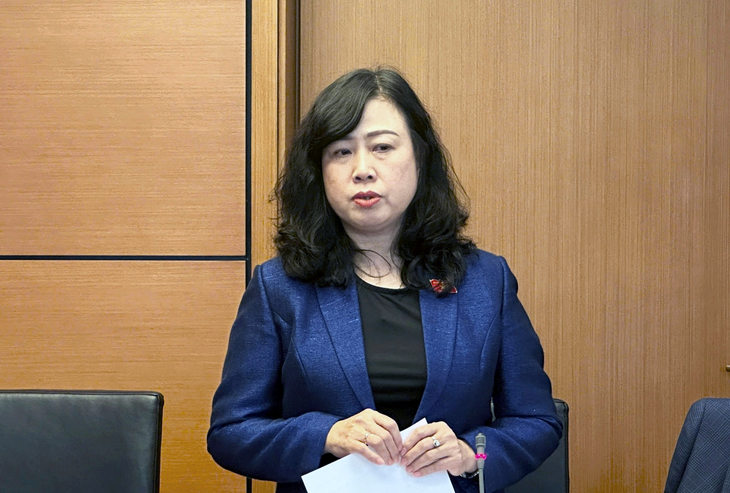
Minister of Health Dao Hong Lan - Photo: N.KH.
Commenting on the draft, delegate Le Thi Ngoc Linh (Ca Mau delegation) agreed with the draft resolution on the state budget ensuring funding through the health insurance fund to conduct periodic health check-ups or free screening at least once a year for subjects for whom the law does not have regulations on funding sources for periodic health check-ups.
Proposal to expand the scope of health insurance beneficiaries to 100%
According to the delegate, this is a very humane policy, consistent with the orientation of caring for and improving people's health early on, from the grassroots level, and reducing treatment costs.
However, many voters are very interested and suggest that this resolution should add a group of people in difficult circumstances with serious illnesses, such as cancer, to be able to enjoy 100% health insurance so that they can have the conditions for treatment.
"This policy is very important to reduce the financial burden on patients and their families, ensure fairness in access to health services, contribute to social stability and is consistent with the view that we should not leave anyone behind. We hope that the Minister of Health will give further advice to promptly support poor patients, especially those with cancer," said delegate Linh.
Incorporating this feedback to perfect policies, moving towards increasing the benefit rate for specific subjects to reduce the burden when participating in health insurance, Minister Dao Hong Lan said that the draft resolution has assigned the Government to specify the subjects and specific support levels to ensure support for the people.
Especially for special subjects such as the elderly and those in difficult circumstances (difficulties that may be caused by illness), Ms. Lan affirmed that she will take into account the opinions of the delegates and research to complete when submitting to the Government according to the appropriate roadmap and steps. The goal is to ensure better care for the people but also ensure that the resources of the health insurance fund are appropriate and harmonize the purposes.
Meanwhile, delegate Tran Van Lam (Bac Giang) was concerned about preferential policies for medical staff and suggested that it is necessary to clarify whether a person can enjoy many benefits and policies when working in a professional field, but also living in remote areas or ethnic minority areas. What are the policies to attract and encourage them?
"Do surgeons, forensic doctors, and psychiatrists in these areas get 200% or will they get 30-50-70% as an incentive? Because if not, surgeons, forensic doctors, and psychiatrists will all run to the plains. But if the 200% rate is applied, is it appropriate or not? This content needs to be clarified," Mr. Lam raised the issue.
Arranging redundant headquarters, the minister said: "Don't worry about health care and education competing with each other"
Regarding the handling of surplus headquarters that are prioritized for healthcare and education, delegate Lam said that there should be appropriate regulations and synchronous policies to avoid confusion. This avoids the situation where the request to arrange for both healthcare and education, prioritizing one area over the other, will be difficult to implement.
Responding, Minister Lan said that for medical staff who enjoy many benefits and policies at the same time, according to regulations on salary policy, these cases will be selected with the highest policy.
For example, the current regulations for medical staff in disadvantaged areas are entitled to a 70% incentive. However, if this resolution is issued, these subjects will be entitled to a higher rate of 100%, ensuring the principle of enjoying the highest incentive regime.
Regarding preferential policies for specific medical staff, Minister Lan said that there are currently regulations for specialized doctors such as traditional medicine doctors, maxillofacial doctors, and people who regularly work directly in the medical profession in the fields of forensic psychiatry, forensic psychiatry, emergency resuscitation, and pathology to enjoy 100% professional preferential treatment.
These are cases working in hospitals, while the draft resolution stipulates that for cases working in primary health care and commune health stations, policies and preferential policies are focused on these subjects.
Regarding the priority arrangement and organization of medical and educational facilities for unused facilities, Minister Lan said that the specific arrangement is decided by local authorities based on an assessment of the level of need, creating favorable conditions for both education and health.
"In the implementation process, there is no need to worry about health and education competing with each other. Recently, the ministry has received a few headquarters, which are suitable for both education and health goals. This is the local authority to decide, so it is good for health, good for education, both are serving the people" - Ms. Lan expressed.
Source: https://tuoitre.vn/bo-truong-dao-hong-lan-se-nghien-cuu-cho-nguoi-ngheo-bi-ung-thu-duoc-huong-bao-hiem-100-20251117114616865.htm







![[Photo] General Secretary To Lam and National Assembly Chairman Tran Thanh Man attend the 80th Anniversary of the Traditional Day of the Vietnamese Inspection Sector](https://vphoto.vietnam.vn/thumb/1200x675/vietnam/resource/IMAGE/2025/11/17/1763356362984_a2-bnd-7940-3561-jpg.webp)
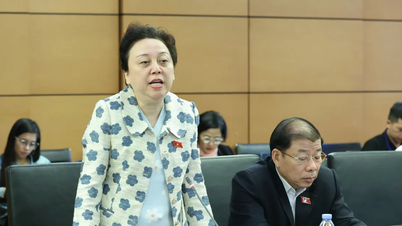




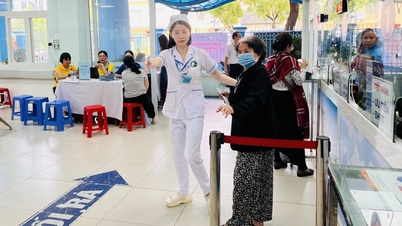
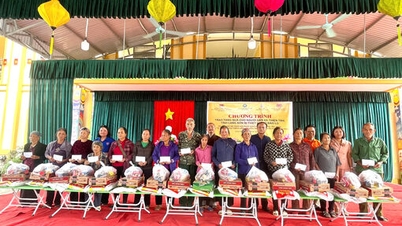

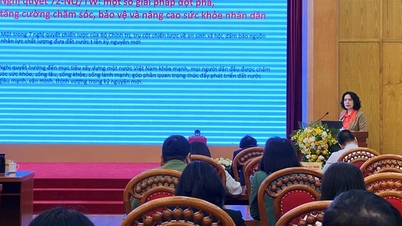







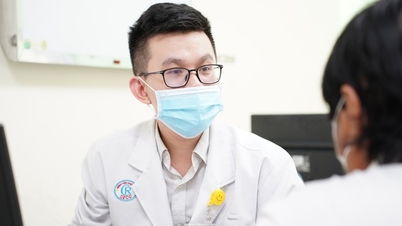




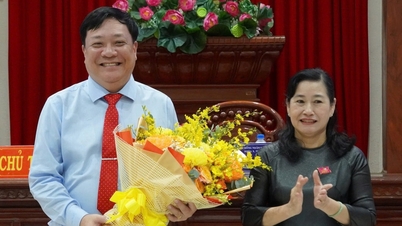
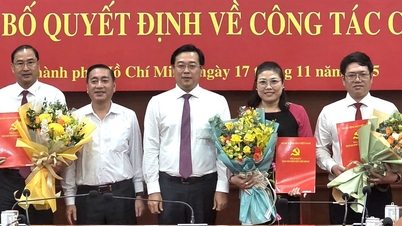

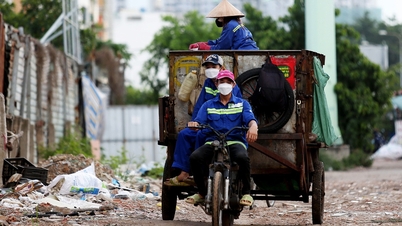

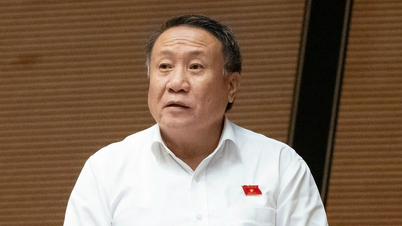





















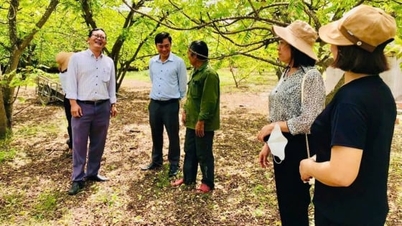































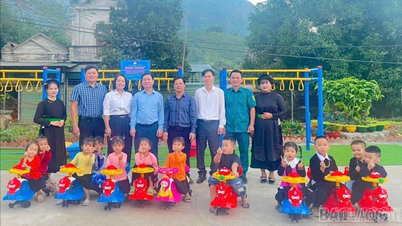




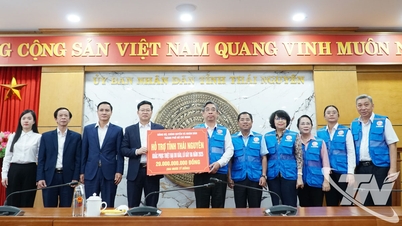














Comment (0)